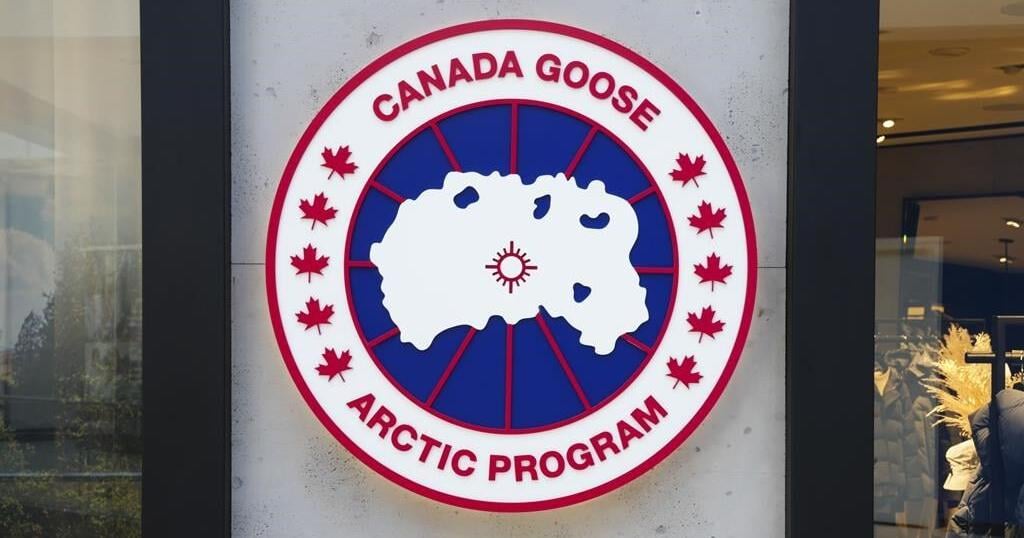Swiss miner Glencore PLC is in talks with Teck Resources Ltd. to buy the Canadian miner’s coal assets, both companies said on Monday, introducing a twist to a takeover saga that has dominated the global mining industry for several weeks now.
Business
Glencore offers to buy Teck’s coal business as takeover battle takes a turn

The announcement comes a week after Teck said multiple companies had sent in proposals to buy the miner’s steelmaking coal assets in British Columbia.
Glencore said its proposal to only acquire Teck’s coal assets does not mean it has dropped the idea to buy the Canadian miner in its entirety, something it has been attempting to do since April. Teck has rejected the Swiss miner twice so far.
If Glencore ends up buying Teck’s coal assets, it will eventually create a separate company that would include both Teck and Glencore’s thermal and steelmaking coal assets.
The takeover battle between the two companies started in February when Teck said it was going to split its company and create Teck Metals, a standalone company that would focus on copper and other minerals considered key for the energy transition away from fossil fuels, and Elk Valley Resources Ltd., which would focus on coal.
The company said the move was designed to unlock more value for shareholders by creating a company for investors who want a clean break from fossil fuels.
But Teck Metals would have depended on cash flow from the coal unit for at least three years following the separation, keeping the coal and metals business intertwined and seemingly going against the proposal’s main selling point to investors.
As it stands, Teck depends on steelmaking coal for about 60 per cent of its revenue, though it has been trying to rebalance its portfolio to produce more metals.
A month later, Glencore said it wanted to take over Teck and undergo its own separation. Glencore, which posted revenue of about US$250 billion last year compared to Teck’s US$13 billion, produces an array of commodities including, gold, copper, cobalt, zinc, nickel, oil and coal.
After merging with Teck, Glencore proposed creating two companies. One would control the combined metals portfolio, and could become the world’s third-largest copper producer. The other would become a publicly-traded company focused on coal.
Glencore’s plan differs from Teck’s in that the two new companies would not depend on the other for revenue.
Teck was forced to cancel that shareholder vote just hours before it was scheduled to take place since it didn’t expect the separation to be approved by two-thirds of its shareholders, the necessary threshold needed for the plan to go through.
The battle between the two companies has also dominated the political front with politicians urging the federal government to prevent such a deal from taking place in a bid to ensure that Teck’s copper continues to be owned by a Canadian company.
Copper is expected to play a key role in the shift away from fossil fuels given it is essential for most electricity-related infrastructure, including electric vehicles and wind turbines, and to transfer electricity. But analysts said that most big mining companies have limited growth opportunities for the red metal, which has set the tone for large-scale mergers.
Industry minister François-Philippe Champagne declined to comment on Glencore’s proposal at a press conference announcing Rio Tinto Ltd.’s $1.4 investment in an aluminum smelter in Quebec.
“I would say we are welcoming foreign investments … but in the specific case of Teck, we like them as a Canadian company,” he said.
In the past, the mayors of the towns of Sparwood and Elkford, B.C., which are near Teck’s steelmaking coal mines and supply most of Teck’s workers, have criticized the possible sale of Teck’s assets to Glencore in April.
Thermal coal is responsible for about 70 per cent of Glencore’s coal business. In the long run, Glencore hopes to run down its coal assets, but believes the commodity is still required as a transition fuel.
Bank of Nova Scotia analyst Orest Wowkodaw said it was unclear whether an offer for Teck’s coal segment represents a shift in Glencore’s strategy to try to acquire the whole company.
Liam Fitzpatrick, analyst at Deutsche Bank AG, said he views Glencore’s proposal to buy Teck’s steelmaking coal as an “attractive middle ground” between the two companies.
“It would provide Teck with a cleaner exit from coal and allow Glencore to split its own business,” he said in a note to clients.
Business
TC Energy cuts cost estimate for Southeast Gateway pipeline project in Mexico

CALGARY – TC Energy Corp. has lowered the estimated cost of its Southeast Gateway pipeline project in Mexico.
It says it now expects the project to cost between US$3.9 billion and US$4.1 billion compared with its original estimate of US$4.5 billion.
The change came as the company reported a third-quarter profit attributable to common shareholders of C$1.46 billion or $1.40 per share compared with a loss of C$197 million or 19 cents per share in the same quarter last year.
Revenue for the quarter ended Sept. 30 totalled C$4.08 billion, up from C$3.94 billion in the third quarter of 2023.
TC Energy says its comparable earnings for its latest quarter amounted to C$1.03 per share compared with C$1.00 per share a year earlier.
The average analyst estimate had been for a profit of 95 cents per share, according to LSEG Data & Analytics.
This report by The Canadian Press was first published Nov. 7, 2024.
Companies in this story: (TSX:TRP)
The Canadian Press. All rights reserved.
Business
BCE reports Q3 loss on asset impairment charge, cuts revenue guidance

BCE Inc. reported a loss in its latest quarter as it recorded $2.11 billion in asset impairment charges, mainly related to Bell Media’s TV and radio properties.
The company says its net loss attributable to common shareholders amounted to $1.24 billion or $1.36 per share for the quarter ended Sept. 30 compared with a profit of $640 million or 70 cents per share a year earlier.
On an adjusted basis, BCE says it earned 75 cents per share in its latest quarter compared with an adjusted profit of 81 cents per share in the same quarter last year.
“Bell’s results for the third quarter demonstrate that we are disciplined in our pursuit of profitable growth in an intensely competitive environment,” BCE chief executive Mirko Bibic said in a statement.
“Our focus this quarter, and throughout 2024, has been to attract higher-margin subscribers and reduce costs to help offset short-term revenue impacts from sustained competitive pricing pressures, slow economic growth and a media advertising market that is in transition.”
Operating revenue for the quarter totalled $5.97 billion, down from $6.08 billion in its third quarter of 2023.
BCE also said it now expects its revenue for 2024 to fall about 1.5 per cent compared with earlier guidance for an increase of zero to four per cent.
The company says the change comes as it faces lower-than-anticipated wireless product revenue and sustained pressure on wireless prices.
BCE added 33,111 net postpaid mobile phone subscribers, down 76.8 per cent from the same period last year, which was the company’s second-best performance on the metric since 2010.
It says the drop was driven by higher customer churn — a measure of subscribers who cancelled their service — amid greater competitive activity and promotional offer intensity. BCE’s monthly churn rate for the category was 1.28 per cent, up from 1.1 per cent during its previous third quarter.
The company also saw 11.6 per cent fewer gross subscriber activations “due to more targeted promotional offers and mobile device discounting compared to last year.”
Bell’s wireless mobile phone average revenue per user was $58.26, down 3.4 per cent from $60.28 in the third quarter of the prior year.
This report by The Canadian Press was first published Nov. 7, 2024.
Companies in this story: (TSX:BCE)
The Canadian Press. All rights reserved.
Business
Canada Goose reports Q2 revenue down from year ago, trims full-year guidance

TORONTO – Canada Goose Holdings Inc. trimmed its financial guidance as it reported its second-quarter revenue fell compared with a year ago.
The luxury clothing company says revenue for the quarter ended Sept. 29 totalled $267.8 million, down from $281.1 million in the same quarter last year.
Net income attributable to shareholders amounted to $5.4 million or six cents per diluted share, up from $3.9 million or four cents per diluted share a year earlier.
On an adjusted basis, Canada Goose says it earned five cents per diluted share in its latest quarter compared with an adjusted profit of 16 cents per diluted share a year earlier.
In its outlook, Canada Goose says it now expects total revenue for its full financial year to show a low-single-digit percentage decrease to low-single-digit percentage increase compared with earlier guidance for a low-single-digit increase.
It also says it now expects its adjusted net income per diluted share to show a mid-single-digit percentage increase compared with earlier guidance for a percentage increase in the mid-teens.
This report by The Canadian Press was first published Nov. 7, 2024.
Companies in this story: (TSX:GOOS)
The Canadian Press. All rights reserved.
-

 News23 hours ago
News23 hours agoAlberta forestry minister says wolverine, lynx trapping limits lifted to gather data
-

 News23 hours ago
News23 hours agoCourt order will compel release of records in Dye & Durham competition probe
-

 News23 hours ago
News23 hours agoQuebec man’s acquittal in 1978 double murder ‘historic and exceptional,’ lawyer says
-

 News24 hours ago
News24 hours agoHealth minister wants all Quebecers to have access to a health professional by 2026
-

 News23 hours ago
News23 hours agoExpert says silence in B.C. port lockout unusual while retailers call for urgency
-

 News24 hours ago
News24 hours agoNova Scotia election: Liberals say province’s immigration levels are too high
-

 News24 hours ago
News24 hours agoNDP asks Speaker to examine social media influencer Lauren Chen’s refusal to testify
-

 News24 hours ago
News24 hours agoNDP calls on federal government to allow open work permits for temporary workers






















